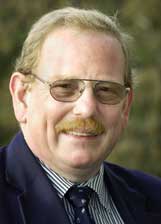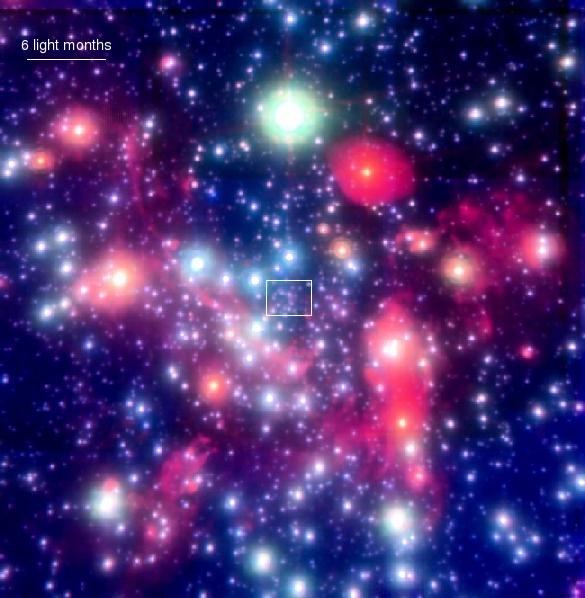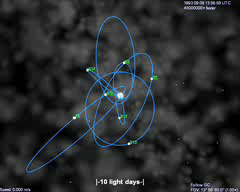|
Rutgers University Department of Physics and Astronomy The 2007 Henry R. and Gladys V. Irons Lecture
|

|
Professor Reinhard Genzel Max-Planck Institute for Extraterrestrial Physics, Garching & University of California, Berkeley Black Holes in Galaxies |
 
|
(online lectures produced by
The Laboratory for Computer Science Research)
|
|
|
|
|
|
|
Several decades ago, astronomers discovered that
certain sources once believed to be peculiar stars within our
own galaxy (the Milky Way) in fact have vastly greater distances
and luminosities. These "quasars" indeed turn out to be the most
luminous objects in the Universe. But what causes them to produce
such enormous quantities of radiation? Since their discovery,
accumulating evidence has suggested that quasars are powered by
matter spiraling in towards massive black holes- objects whose
gravitational pull is so powerful that not even light can escape.
I will discuss recent, ultra-high-resolution observations with
large ground-based telescopes that prove beyond any reasonable
doubt that the center of our own Milky Way hosts precisely
such a massive black hole. These observations also indicate
that our galaxy's central black hole may be rotating rapidly.
I will close by discussing our present knowledge about the
formation and evolution of these massive black holes in the
early Universe.
Professor Reinhard Genzel is a director of the Max-Planck Institute for Extraterrestrial Physics in Garching, Germany, as well as a professor in the Department of Physics at the University of California, Berkeley. His research on the origin and evolution of galaxies and the black holes lying at their centers, which encompasses the development of novel instrumentation, has been recognized with numerous awards including the 2003 Balzan Prize. Please note that Professor Genzel will also present a special research seminar on Monday March 5 at 12:00 P.M., in Serin Laboratory Room 385E, on "Dynamics of High Redshift Galaxies". |